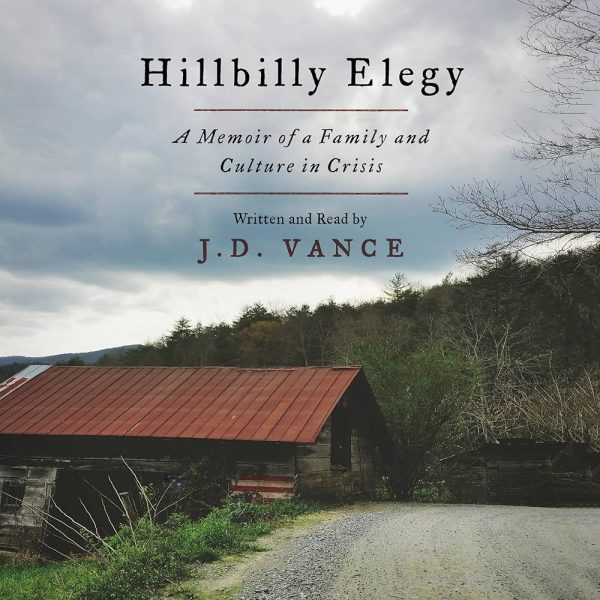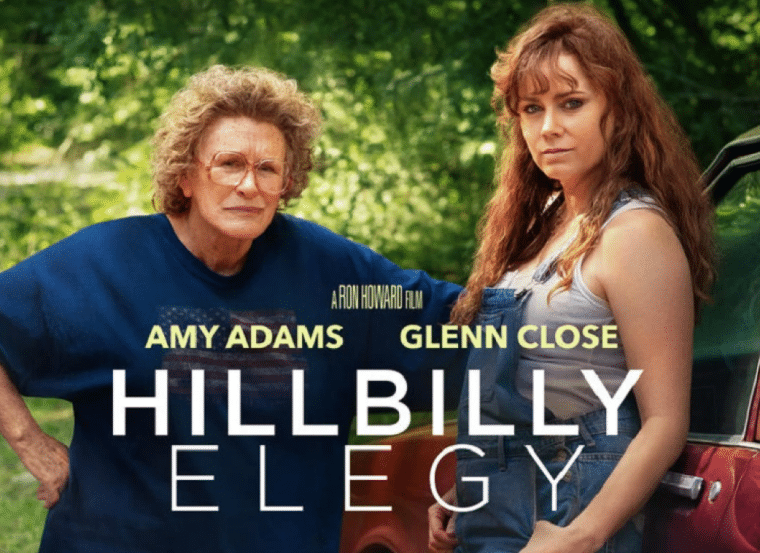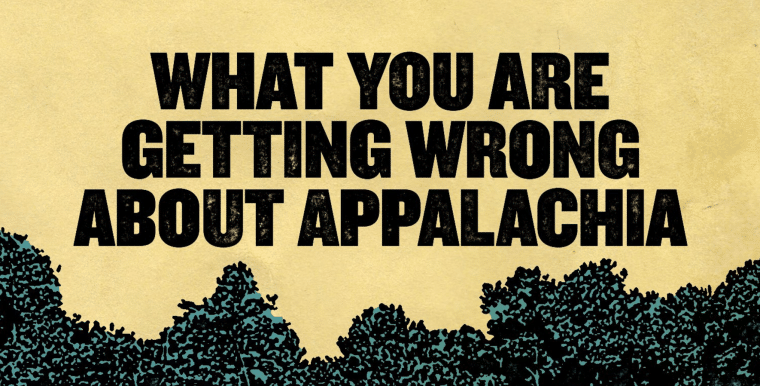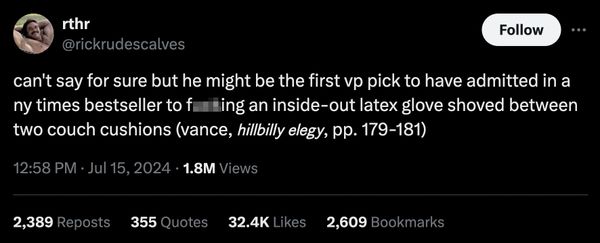The Hillbilly Elegy controversy centered around the release and reception of JD Vance’s memoir, Hillbilly Elegy, which chronicled his upbringing in the Appalachian region and his family’s struggles with poverty and dysfunction. Vance’s story quickly rose to the top of the New York Times bestseller list, fueled by its controversial exploration of the challenges faced by the white working class in the Rust Belt.
In this article, you’ll find a detailed and impartial analysis of the Hillbilly Elegy controversy, exploring the various narratives surrounding Vance’s Appalachian literature. Drawing from a variety of sources and critiques from both supporters and detractors, we’ll delve into the heart of the matter. Business2Community aims to provide well-sourced facts and multiple perspectives on Vance’s story, highlighting reactions from the community and culture at large.
Hillbilly Elegy Controversy – Key Facts
- Hillbilly Elegy has sparked controversy over its portrayal of Appalachian culture, leading to criticism that it reinforces negative stereotypes of the region and its people.
- The book’s themes and Vance’s subsequent political career have intertwined, making it a focal point for discussions on socioeconomic issues and their representation in politics, contributing to JD Vance’s heightened public profile.
- The controversy has captured significant media attention, evidenced by debates and discussions sparked on various platforms about Appalachia’s depiction and its broader implications.
The Story of the Hillbilly Elegy Controversy
The controversy surrounding Hillbilly Elegy is rooted in JD Vance’s portrayal of Appalachia and its residents, sparking significant debate among historians, journalists, readers, and cultural critics. Despite its commercial success, Vance’s memoir has been criticized for perpetuating stereotypes of Appalachians as lazy and for offering simplistic solutions to complex socio-economic issues.
Who is JD Vance?
JD Vance is an author and venture capitalist born in Middletown, Ohio, who rose to prominence with the publication of his memoir, Hillbilly Elegy.

The book chronicled Vance’s experiences growing up in a working-class family in the Appalachian region. After serving in the US Marine Corps and graduating from Yale Law School, Vance sought to shed light on the struggles of the white working class, weaving a narrative of resilience and aspiration.
After Yale, Vance worked in a venture capital firm in Silicon Valley and was mentored by tech billionaire and outspoken political activist Peter Thiel, who was a PayPal and Palantir founder. JD went back to Ohio to stand for senate in 2022, with a donation of $15 million from his former boss Thiel and other tech investors.
Although previously criticizing Donald Trump and even suggesting that he may be “America’s Hitler” (in private), Vance was endorsed by the former president for his senatorial run after flipping positions, and was picked to be Trump’s running mate in the 2024 Presidential Election. Some pundits and political theorists suggest that he was chosen for 2 main reasons: money and loyalty. Given that Vance had incredibly important ties to the VC industry, namely Peter Thiel, he could be a major asset for fundraising.
Vance has shown his unwavering loyalty to Donald Trump as well, repeatedly saying that Trump won the 2020 election (which he did not) and he even said that he wouldn’t have certified the election if he were in Mike Pence’s shoes.
What is Hillbilly Elegy?
When Hillbilly Elegy debuted, it quickly climbed the bestseller lists in 2016, propelled by a narrative that resonated in the political atmosphere of the time. Vance’s book painted a picture of his troubled upbringing, aiming to explain the socio-economic challenges faced by many families like his own.
Released amidst political upheaval, it was perceived by some as a blueprint for understanding the frustrations of the Rust Belt, and by others as an oversimplification of complex issues.
Vance writes with stark, personal anecdotes, situating his family’s story within larger American Dream narratives, sparking widespread critical attention.
His memoir became a cultural touchstone during the election of Donald Trump, spotlighting the socio-economic grievances of this demographic. The book was especially popular with liberals who were looking to understand why so many Americans turned to Donald Trump.
The Netflix adaptation of Hillbilly Elegy, starring Amy Adams, Gabriel Basso, and Glenn Close and directed by Ron Howard, brought Vance’s story to a wider audience. While the film amplified the book’s themes, it sparked debates about its portrayal of Appalachian culture and potential reinforcement of stereotypes, further embedding Vance’s work in popular culture.

Examination of a Condescending Perspective
The primary criticism leveled against Vance’s Hillbilly Elegy is that it presents a condescending view of the communities it depicts. Critics argue that Vance’s analysis overlooks systemic issues (namely outsourcing) and paints Appalachian folk with broad, disparaging strokes.
The book simplifies Appalachia’s complex culture, leading to shallow discussions about the region. Appalachia had long been portrayed through two primary stereotypes: romanticized as “yesterday’s people” or demonized for failing to adapt.
Accusations of perpetuating negative tropes and failing to authentically represent the region’s diverse experiences have polarized opinions, with some seeing value in Vance’s personal journey and others challenging its implications for understanding American inequality and cultural divides.
Elizabeth Catte, a historian, criticized Vance’s portrayal in her book What You Are Getting Wrong About Appalachia, arguing he universalized his family’s experience.

Catte emphasized Appalachia as part of the US, pushing for a more nuanced narrative beyond stereotypes of poverty. She critiqued “Trump Country” media portrayals for reinforcing one-dimensional views of Appalachia.
Meredith McCarroll, an Appalachian writer, initially empathized with the memoir but criticized it for shifting from a personal story to perpetuating harmful stereotypes about Appalachians.
McCarroll likened the lasting impact of Hillbilly Elegy on Appalachia to how The Wire shaped perceptions of Baltimore, both perpetuating harmful stereotypes. She argued that the book misrepresents Appalachian culture and reinforces classist views of the region.
In an Instagram reel by julesandthevibe, the creator discusses JD Vance and his portrayal of Appalachia in Hillbilly Elegy. She critiques Vance’s narrative, suggesting that he frames the region and its people in a negative light.
who is this J.D. guy everyone is talking about?
(via julesandthevibe on Instagram) pic.twitter.com/0XNBXXBnEL
— NowThis Impact (@nowthisimpact) July 19, 2024
Her commentary reflects the broader backlash against Vance, with many accusing him of exploiting stereotypes about Appalachians for personal gain while failing to acknowledge the region’s complexities and strengths.
The Sofa Scene: A Symbol of Controversy
Another specific controversy tied to Hillbilly Elegy involves a false rumor that JD Vance had sex with his couch. The rumor originated when a user on X claimed that JD Vance’s 2016 memoir, Hillbilly Elegy, contained a section describing an intimate encounter with an “inside-out latex glove between two couch cushions.” 
This claim was entirely fabricated, as no such passage exists in the book. However, the post, which appeared on July 15, included a fake page reference, convincing many that it was a real excerpt.
The Tweet was clearly a joke but it quickly took off anyway, spreading like wildfire on platforms like TikTok and X, with memes and jokes taking on a life of their own.
A viral Associated Press article debunked the rumor but was later removed from the website due to not following editorial standards, which raised speculation. Taking down the page just made the problem worse, making some readers think that the rumor was indeed real.
The rumor was only one of several controversies surrounding Vance during his first days as a VP nominee, including a viral clip where he criticized “childless cat ladies” (Democrats) and a failed joke about diet Mountain Dew at a Trump rally.
Democrats capitalized on the strangeness of Vance’s platform, with leaders like Minnesota Governor and Democratic Vice Presidential candidate Tim Walz and Kamala Harris’s campaign mocking the oddities of the Republican ticket, calling them “weird”.
The JD Vance couch rumor highlighted the absurdity of the 2024 election, where bizarre, viral moments blurred the lines between truth and fiction.
The controversy cemented Vance’s reputation as the VP nominee linked to a peculiar and humorous rumor.
The Consequences of the Hillbilly Elegy Controversy
The controversy surrounding Hillbilly Elegy had widespread ramifications, influencing political dynamics, cultural discussions, and media narratives. For Vance, the debates over his portrayal of Appalachians have amplified his platform, drawing both criticism and support, which has thrust him into the national spotlight further. The attention has helped propel his public and political profile, despite the mixed reception of his narrative.
Conversely, for Appalachian communities, the book’s success and controversies have amplified national attention on their socio-economic conditions. While some locals appreciate the spotlight on their struggles, many feel misrepresented and stereotyped, prompting increased dialogue on the nuanced realities of Appalachian life.
Anthony Harkins, a scholar specializing in Appalachian history, pointed out how Vance’s memoir added fuel to political discourse, especially as JD Vance became an Ohio Senator and eventual Vice Presidential nominee.
Other critics, including Meredith McCarroll, emphasized that while Vance’s story of seeking a better life resonated with some, it also painted an overly simplistic picture of the region, affecting the public’s perception of “hillbillies” in Appalachia. In the broader cultural sphere, the controversy has fueled a discourse on the ethics of storytelling and representation, challenging authors and filmmakers to approach regional and cultural narratives with greater sensitivity and accountability.
What Can We Learn From the Hillbilly Elegy Controversy?
The Hillbilly Elegy controversy offers several lessons for business professionals, particularly in understanding the importance of audience awareness and ethical storytelling.
One key takeaway is the significance of knowing and respecting your audience. JD Vance’s portrayal, while a personal story of his family’s experience, was perceived by many as an oversimplification, leading to backlash from the Appalachian region, including those in Kentucky and the Jackson area, where the story was set. This emphasizes the need for sensitivity and awareness of diverse perspectives when crafting narratives, whether in business or media writing.
For businesses, this serves as a reminder to approach marketing and narrative strategies with cultural sensitivity and a deep understanding of audience diversity.
Additionally, the rapid spread of misinformation, such as the fabricated couch rumor, emphasizes the necessity for businesses to implement robust crisis management and fact-checking procedures in the age of social media. This situation underscores the need for companies to maintain credibility and swiftly address any false narratives, as the opinions and perceptions formed can have lasting effects on brand reputation.
Additionally, the case underscores the complexities of taking a moral or ethical stand. Deciding when to defend one’s narrative or re-evaluate its impact involves considering not only the core message but also the broader societal implications. Young authors and business leaders alike should be mindful of how their storytelling choices may resonate with varied audiences, offering a narrative of hope and highlighting multiple escape stories rather than generalizations.
Ultimately, the Hillbilly Elegy controversy serves as a reminder that, whether in business or writing, ethical consideration and audience respect are paramount in shaping narratives that are not only compelling but also culturally sensitive and inclusive.
